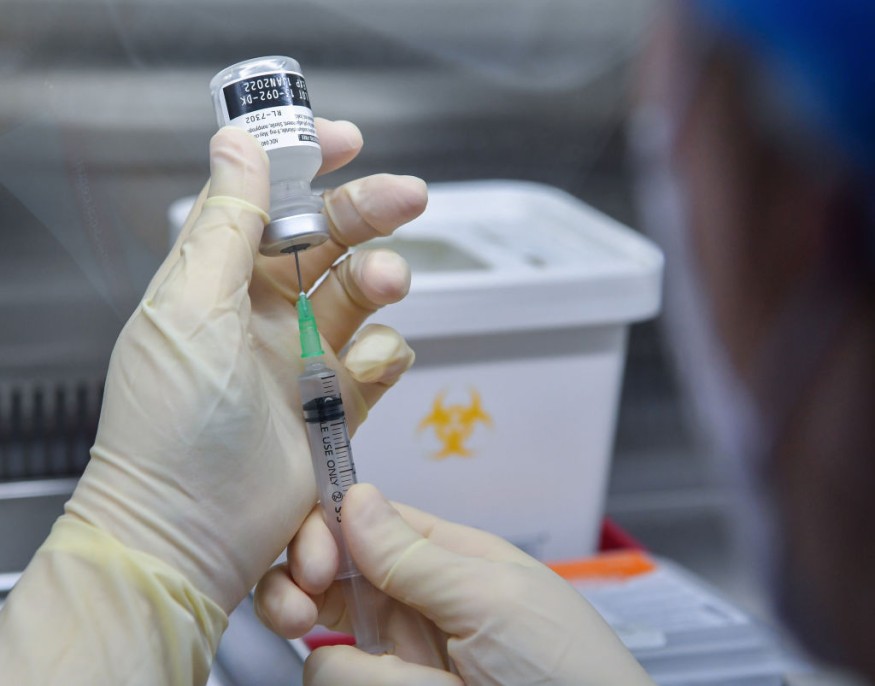
Homemade COVID-19 vaccine appears to be more effective than the broadly used AstraZeneca shots, and in fact generated immune response in clinical trials.
The country's first domestically developed vaccine for Covid was approved by health officials on Wednesday for ages 18 and above, ABC News reported.
Running for more than two years, the pandemic sure needs another public health tool to fight against, according to the broadcasting television network.
In clinical trials involving some 4,000 participants in South Korea and five other countries, the SK Bioscience's two-dose SKYCovione vaccine appeared to be more effective than AstraZeneca, and exhibits immunity against infections, the officials at South Korea's Food and Drug Safety Ministry said.
The third phase of trial for the vaccine was conducted in Thailand, Vietnam, New Zealand, Ukraine, the Philippines and South Korea.
According to Yahoo! News, the approval of SKYCovione internationally confirmed the abilities of companies to develop Covid-19 vaccines, as per Food and Drug Safety minister Oh Yu-kyoung.
Potential Export Opportunities
Mass immunization campaign in South Korea and other countries have been heavily dependent on Pfizer and Moderna's mRNA shots, which is why administration of the newly developed vaccine plays a big role in the next phase of the pandemic.
Officials said that people who are hesitant to use vaccines developed with newer technologies so far may consider protein vaccines like SKYCovione, which are similar to shots used for years against the common flu and hepatitis B, thus it is expected to boost the country's vaccination efforts.
According to Oh Yu-kyoung, SK Bioscience also seeks approval from the World Health Organization for its shots, which would potentially open export opportunities.
Although most of the virus restrictions were eased in the country after battling an omicron surge earlier this year, some experts say that the country may see another rise in infections despite a high vaccination rate due to waning immunities and possible emergence of new variants.
Nearly 87% of the country's population has been fully vaccinated as of late Thursday, while around 65% have received a third shot.
Also read : Early-Season Heat Wave in Japan Places Significant Strain on Residents and Power Grid Over the Past Week
Another Potential Surge
Although the country's coronavirus infection has receded in the meantime, the country reported 10,463 new cases of the coronavirus on Wednesday, its first daily increase over 10,000 in 20 days, according to Xinhua News, bringing the total tally to 18,349,756.
The Korea Disease Control and Prevention Agency (KDCA) reported that daily caseload was brough up from 9,896 the previous day, and higher than 8,979 tallied a week earlier.
For the past week, the daily average number of confirmed cases was 7,363.
The agency confirmed total death toll to 24,537, with total fatality rate currently standing at 0.13 percent.
In a separate briefing, Health Ministry official Son Youngrae said that it is too early to tell if the country is facing another surge after a month-long downward trend, but it would be wise to think ahead of mitigation efforts to prevent far larger damage.
Related article : CDC Warns Us of the Unusual Symptoms that Come with Monkeypox
© 2026 NatureWorldNews.com All rights reserved. Do not reproduce without permission.





